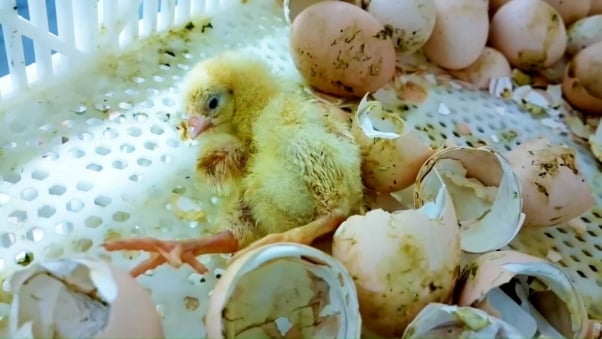Victory! North Carolina ‘Ag-Gag’ Law Struck Down as Unconstitutional
Update: June 17, 2020
We fought North Carolina’s “ag-gag” law (dubbed the “Anti-Sunshine Law” and officially titled the Property Protection Act), arguing that it violates the free speech rights of whistleblowers in slaughterhouses, on factory farms, in laboratories, and elsewhere. And late on Friday, we won.
A federal judge struck down the law, which was designed to inhibit undercover investigations in the state, as unconstitutional. Under the law, organizations and journalists who run undercover investigations (like the two we conducted of University of North Carolina–Chapel Hill’s animal laboratories) as well as individuals who expose improper or criminal conduct by North Carolina employers (like PETA’s whistleblowers) could have been sued for substantial damages if they made such evidence available to the public or the media.

The state legislature overrode a veto of the bill by former governor Pat McCrory in June 2015, and the law took effect on January 1, 2016. In early 2016, a coalition of consumer rights, food safety, whistleblower protection, and animal protection organizations—including PETA—filed a federal lawsuit challenging the constitutionality of the North Carolina law. And just like we did in Idaho, Iowa, and Utah, we came out with a win for animals in the Tar Heel State.
State legislators elsewhere should take note: These types of laws are simply unconstitutional.
Originally posted on September 13, 2017:
Anti-whistleblower laws (commonly called “ag-gag” laws) have been enacted across the country to block people from documenting and exposing cruelty to animals. In January 2016, North Carolina’s ag-gag law, House Bill (H.B.) 405, went into effect. This law gives employers the right to sue those who document and expose welfare issues on their property without permission, thereby threatening crucial eyewitness investigations, such as PETA’s recent exposé of a North Carolina hatchery.
With footage captured in late 2015 before H.B. 405 went into effect, this video exposé of a massive hatchery operated by Sanderson Farms, Inc.—which is the third-largest poultry producer in the U.S., supplying chicken meat to Kroger, Sysco, Arby’s, Chili’s, and others—documents that chicks who hatched later than expected were often left to suffer in barren plastic crates. These hours-old babies—deprived of warmth, comfort, and mothering—are seen gasping for air, some too weak to stand or lift their heads. One dead chick appeared to have a broken neck. Discarded chicks who survived were put into a giant metal macerator and ground up alive—but some missed the machine’s entry and were left to die slowly where they fell.
It’s standard practice for unwanted chicks to be ground up alive in the poultry industry, but most consumers have no idea about this horrifying practice. PETA’s exposés of animal neglect and abuse are crucial—consumers must understand where their meat, eggs, and dairy come from—and stifling this work protects only abusers, not the abused.
In 2016, PETA and a coalition of groups filed a federal lawsuit challenging H.B. 405. North Carolina is arguing that PETA or any other group that seeks to challenge the unconstitutional law must first risk millions of dollars in potential liability by violating it and being sued—in direct opposition to the Constitution’s longtime recognition of the right to challenge laws that impede First Amendment activities without first having to violate the law.
Instead of violating the First Amendment rights of those who expose suffering, North Carolina and other states should take action against those who are responsible for inflicting it.
What You Can Do
Animals are neglected and abused every day on factory farms. Protect these sentient beings by pledging to go vegan today.

